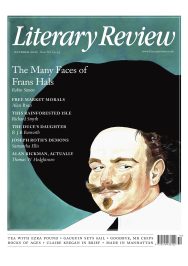Arin Keeble
Growing Pains
Best of Friends
By Kamila Shamsie
Bloomsbury 272pp £16.99
Kamila Shamsie’s eighth novel, Best of Friends, follows 2017’s prize-winning Home Fire, a wrenching story of a London family torn apart by state violence that was also vividly prescient. In its depiction of the politician Karamat Lone, an ambitious Thatcherite with a Pakistani-Muslim background, it seemed to anticipate Sajid Javid’s rise to the office of home secretary, while its story of a person stripped of their citizenship became resonant in the context of the high-profile case of Shamima Begum, made stateless after having travelling to join ISIS, who groomed her as a child. Home Fire was rightly lauded for its trenchant political commentary, but its compelling human relationships were a key part of what made it so impactful. These are also the strengths of Best of Friends.
The novel is ostensibly a story of binaries. It is a book of two halves, set in two places and periods (Karachi in 1988 and London in 2019), and it tells the story of two best friends, Maryam Khan and Zahra Ali. It also explores the effects of two sequences of events, one political and one personal, which occur when Maryam and Zahra are fourteen years old, living in Karachi. The first is the death of the Pakistani dictator Mohammad Zia-ul-Haq in 1988 and the subsequent election of Benazir Bhutto, which incites a tide of youthful optimism in Pakistan. The second occurs shortly after this, when Zahra and Maryam share a harrowing experience after deciding to join two young men for a car ride after leaving a school party. The experiences they share and the way they explain the incident to their parents and school leave them both with unresolved feelings and secrets.
We encounter Maryam and Zahra again in London in 2019. They both have prominent careers that have been neatly foreshadowed by their childhood traits – the former’s ambition and the latter’s sense of moral purpose. Maryam is a venture capitalist specialising in tech start-ups and spearheading a social

Sign Up to our newsletter
Receive free articles, highlights from the archive, news, details of prizes, and much more.@Lit_Review
Follow Literary Review on Twitter
Twitter Feed
Under its longest-serving editor, Graydon Carter, Vanity Fair was that rare thing – a New York society magazine that published serious journalism.
@PeterPeteryork looks at what Carter got right.
Peter York - Deluxe Editions
Peter York: Deluxe Editions - When the Going Was Good: An Editor’s Adventures During the Last Golden Age of Magazines by Graydon Carter
literaryreview.co.uk
Henry James returned to America in 1904 with three objectives: to see his brother William, to deliver a series of lectures on Balzac, and to gather material for a pair of books about modern America.
Peter Rose follows James out west.
Peter Rose - The Restless Analyst
Peter Rose: The Restless Analyst - Henry James Comes Home: Rediscovering America in the Gilded Age by Peter Brooks...
literaryreview.co.uk
Vladimir Putin served his apprenticeship in the KGB toward the end of the Cold War, a period during which Western societies were infiltrated by so-called 'illegals'.
Piers Brendon examines how the culture of Soviet spycraft shaped his thinking.
Piers Brendon - Tinker, Tailor, Sleeper, Troll
Piers Brendon: Tinker, Tailor, Sleeper, Troll - The Illegals: Russia’s Most Audacious Spies and the Plot to Infiltrate the West by Shaun Walker
literaryreview.co.uk